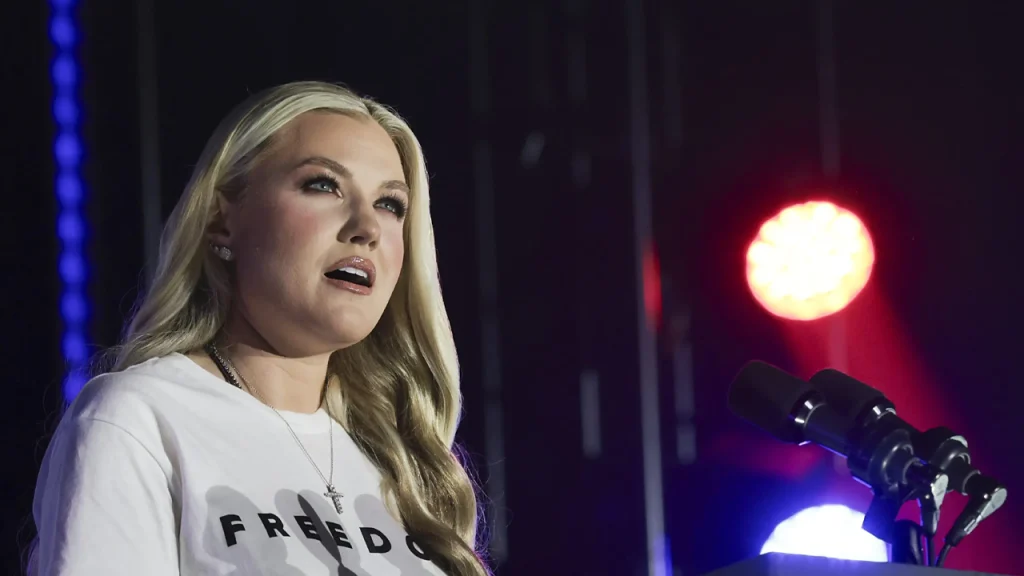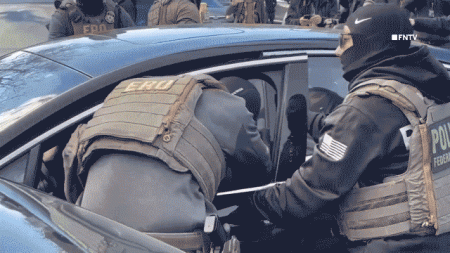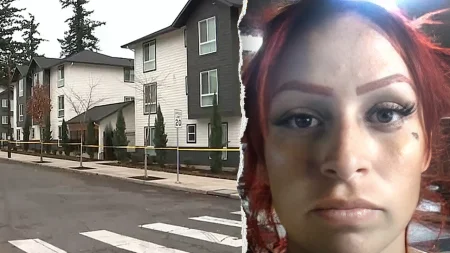Widow of Charlie Kirk Fights for Transparency in Accused Assassin’s Trial
In an emotional interview with Fox News’ Jesse Watters, Erika Kirk, widow of Turning Point USA founder Charlie Kirk, has passionately advocated for keeping news cameras in the courtroom during proceedings against her husband’s alleged killer, Tyler Robinson. “There were cameras all over my husband when he was murdered,” she expressed with evident frustration. “There have been cameras all over my friends and family mourning. There have been cameras all over me, analyzing my every move, analyzing my every smile, my every tear. We deserve to have cameras in there.” Her plea comes as Robinson’s defense team has moved to limit media coverage of the trial, a motion that Erika believes undermines transparency in a case that has deeply impacted her life and garnered national attention.
The high-profile nature of the case has already prompted increased security measures at the courthouse, with Robinson himself having attended previous hearings virtually without showing his face. This lack of visibility has only strengthened Erika’s resolve for transparency. “Why not be transparent?” she questioned during her interview. “There’s nothing to hide. I know there’s not because I’ve seen what the case is built on.” Her words reflect the frustration of someone who has endured public scrutiny while grieving, yet now faces the possibility that the judicial process might unfold with limited public visibility.
The tragic event at the heart of this case occurred on September 10, when 22-year-old Robinson allegedly fired a single shot from a Mauser .30-06 rifle from a rooftop at Utah Valley University. The bullet struck Charlie Kirk in the neck as he addressed an audience during a Turning Point USA event, fatally wounding him. This cold, calculated act has left Erika determined that the public should witness the full judicial process. “Let everyone see what true evil is,” she stated with conviction. “This is something that could impact generations to come.” Her words suggest a belief that the societal implications of this case extend far beyond the courtroom walls.
Robinson faces serious charges, including aggravated murder, which could potentially result in the death penalty if he is convicted. Though he has not yet entered a plea, the legal proceedings have already seen some contentious decisions from Judge Tony Graf. The judge recently granted a defense motion allowing Robinson to wear civilian clothes in court, citing his constitutional presumption of innocence. However, he denied a request to allow Robinson to appear without shackles, balancing legal rights with security concerns. At the last hearing, Judge Graf instructed lawyers to submit new briefs and a motion specifically addressing the issue of cameras in court, indicating this remains an unresolved matter.
Erika Kirk’s appeal for transparency touches on fundamental questions about public access to high-profile criminal proceedings. While courts must balance the rights of the accused with public interest, Erika’s argument highlights the asymmetry she perceives—that while her grief and her husband’s murder have been extensively documented and analyzed by media, the alleged perpetrator might be afforded a degree of privacy during legal proceedings. Her advocacy represents not just a widow seeking justice, but a citizen concerned with how our judicial system operates in the public eye, particularly in cases of national significance.
The next significant development in this case is expected on January 16, 2026, when Robinson is scheduled to make his first in-person court appearance. This future hearing represents a critical moment in the judicial process, potentially the first time the public will see the face of the man accused of assassinating Charlie Kirk. For Erika Kirk, ensuring cameras are present for this and all subsequent hearings appears to be not just about personal closure, but about ensuring that justice is not only done but is seen to be done—a principle she believes honors her husband’s memory and serves the public interest in understanding the full dimensions of this tragic case.








